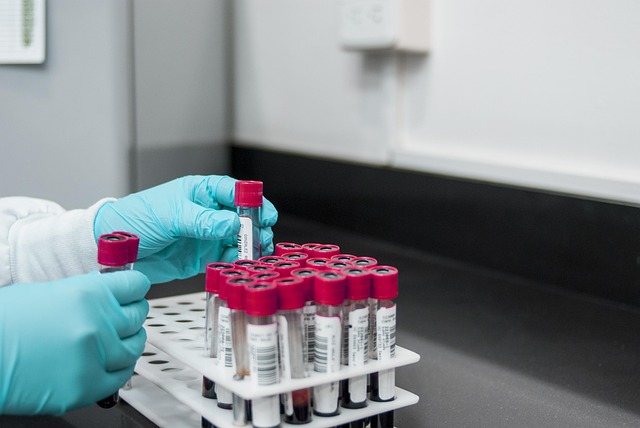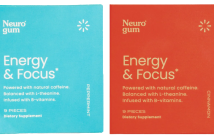
You can eat clean, hit the gym, and keep up with your daily routine, but how do you really know what’s happening inside your body? That’s where blood tests step in. They’re not just a snapshot of your inner health, they’re a powerful tool that empowers you to understand and take control of your health, showing you things that diet and exercise alone can’t always reveal.
From energy levels to heart health, blood tests give you early warning signs and valuable feedback on how your body is performing. According to One Day Tests a general health panel typically includes checks for blood cells, cholesterol, blood sugar, hormones, and key vitamins and minerals, all the essentials for keeping track of your wellbeing.
In this article, we’ll examine the core blood tests that give the clearest picture of overall health, what they reveal, who should consider them, and how often they should be checked.
Which Blood Tests Give the Best Picture of Your Health?
Why blood is a window into general wellbeing
Your blood carries oxygen, nutrients, hormones, and waste products around the body. Any disruption in these systems often shows up in your blood before symptoms appear. That’s why blood tests are such a powerful way to keep tabs on your health, they act as an early warning system.
Difference between general and specialist blood tests
General blood tests are designed to give a broad picture of your health. They check major systems like blood cells, organ function, and nutrition. Specialist tests, on the other hand, zoom in on specific concerns like fertility, hormone imbalances, or autoimmune disease. Both are valuable, but general tests are the best place to start.
The Essential Blood Tests for Overall Health
When you go for a routine health check, these are the panels most often included:
Complete Blood Count (CBC): This looks at red blood cells, white blood cells, and platelets. It’s useful for spotting anaemia, infection, or immune issues that may leave you feeling run down.
Kidney function tests measure substances like creatinine and urea to determine how well your kidneys filter waste. Poor kidney function can cause tiredness, swelling, or long-term complications.
Liver function tests: The liver is your body’s detox centre. These tests check enzymes and proteins, revealing whether it’s working well or under stress.
Lipid profile (cholesterol and triglycerides): This test breaks down your cholesterol into “good” and “bad” types and measures triglycerides. High numbers here mean a higher risk for heart disease and stroke.
Blood sugar and HbA1c: Fasting blood sugar gives a snapshot, while HbA1c shows your average glucose levels over the past few months. Together, they help detect diabetes and prediabetes.
Thyroid function tests: Check the levels of TSH, T3, and T4 hormones. Too high or too low can explain fatigue, weight changes, or mood swings.
Vitamin and mineral panels: Common checks include vitamin D, vitamin B12, folate, iron, and zinc. Deficiencies here can impact energy, immunity, and even mental health.
What These Results Can Tell You
Energy and fatigue causes
Feeling tired all the time? Blood tests often show whether low iron, B12, or thyroid issues are behind the problem.
Heart and circulation health
Your cholesterol and blood sugar levels are strong predictors of long-term heart health. Even if you feel fine, abnormal results here can highlight hidden risks.
Organ function (liver, kidney, thyroid)
Organs often show signs of stress before symptoms start. Blood tests help spot issues early, providing a sense of relief that treatment or lifestyle changes can make a difference, reducing anxiety about potential health issues.
Nutritional balance and deficiencies
It’s easy to assume your diet covers everything, but many people are low in vitamin D, iron, or B12. Blood tests confirm whether your body is really getting what it needs.
Who Should Get a General Health Check?
The truth is, almost anyone can benefit.
● Adults wanting a preventive check: A yearly test acts as a personal health MOT, catching problems before they escalate.
● People with risk factors or family history: If conditions like diabetes, heart disease, or thyroid disorders run in your family, regular checks give peace of mind.
● Anyone with ongoing symptoms, such as persistent fatigue, weight changes, low mood, or skin issues, often has answers hidden in their blood.
How Often Should You Test?
An annual blood test is usually enough for healthy adults to stay on top of things. It’s a manageable way to build a health record you can compare year after year, making health maintenance less burdensome.
If you already have a condition like diabetes or high cholesterol, or if you’re on long-term medication, your doctor may recommend testing more frequently to track progress.
FAQs About General Blood Tests
Is there one test that shows everything?
No, but a general health panel covers the most important systems. Specialist tests are used if something specific needs investigating.
Can blood tests detect serious illness?
Yes. They can pick up diabetes, thyroid disease, anaemia, organ problems, and risk factors for heart disease. Some cancers may show clues, but further tests are usually needed.
How quickly do results come back?
Most standard panels return results within a few days. Some tests may be available even sooner.
Do I need a doctor’s referral?
Not always. Many private services allow you to book blood tests directly, and the results are explained in clear reports.
Final Thoughts: Blood Tests as a Health MOT
Blood tests aren’t just for when you feel sick, they’re one of the best tools for prevention. From energy levels to organ health, these simple checks clearly show what’s happening inside your body.
Whether you’re chasing peak performance, monitoring risk factors, or just looking for reassurance, routine blood tests make it easier to control your health and your future.


